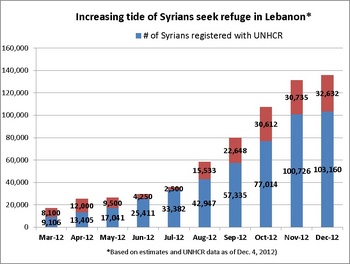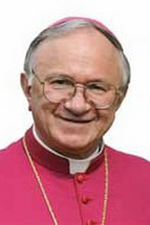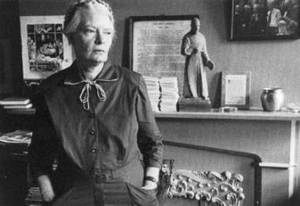What does the Church’s teach about tithing today?
The question of tithing is better addressed first, by looking at the bible. The Church’s practice is based on the revealed word of God. The biblical warrant can’t be ignored. What does sacred Scripture tell us about a believer’s responsibility and duty to tithe?
There is also the witness of Abraham giving the priest Melchizedek offering God who in turn gave the best of the wine and bread (see Genesis 14).
In the Book of Deuteronomy we hear: “Each year you shall tithe all the produce that grows in the field you have sown…so that the Levite who has no share in the heritage with you and also the alien, the orphan and the widow who belong to your community, may come and eat their fill so that the Lord your God may bless you in all that you undertake” (14:22, 29).
Or, in Leviticus we read: “The tithes of the herd and the flock shall be determined by ceding to the Lord as sacred every tenth animal as they are counted by the herdsman’s rod” (27:32).
Or, in the Book of Numbers, “Give the Levites these instructions: When you receive from the Israelites the tithe I have assigned you from them as your heritage, you are to make a contribution from them to the Lord, a tithe of the tithes…” (18:26).
In Proverbs, “Honor the Lord with your wealth, with first fruits of all your produce; then will your barns be filled with grain, with new wine your vats will overflow” (3:9-10).
Malachi foretells, “Dare a man rob God? Yet you are robbing me! And you say, ‘How do we rob you?’ In tithes and offerings! You are indeed accursed, for you, the whole nation, rob me. Bring the whole tithe into the storehouse, that there may be food in my house and try me in this way, says the Lord of hosts; Shall I not open for you the floodgates of heaven to pour down blessings upon you without measure?” (3:8-10).
Or in Saint Luke, we hear: “Give and gifts will be given to you; a good measure, packed together, shaken down, and overflowing, will be poured into your lap. For the measure with which you measure will in return to measured out to you” (6:38).
Again from Saint Luke we hear: “Then he said to the crowd, ‘Take care to guard against all greed, for though one may be rich, one’s life does not consist of possessions'” (12:15).
At 1 Corinthians 16:2, Saint Paul writes, “On the first day of the week [Sunday] each of you should set aside whatever he can afford.”
At 2 Corinthians 9:5-8, “So I thought it necessary to encourage the brothers to go on ahead to you and arrange in advance for your promised gift [donation], so that in this way it might be ready as a bountiful gift and not as an exaction. Consider this: Whoever sows sparingly will also reap sparingly, and whoever sows bountifully will also reap bountifully. Each must do as already determined without sadness or compulsion, for God loves a cheerful giver. Moreover, God is able to make every grace abundant for you, so that in all things, always having all you need, you may have an abundance for every good work.”
Or, in 1 Timothy, where Saint Paul says: “Tell the rich in the present age not to be proud and not to rely on so uncertain a thing as wealth but rather on God, who richly provides us with all things for our enjoyment. Tell them to do good, to be rich in good works, to be generous, ready to share, thus accumulating as treasure a good foundation for the future, so as to win the life that is true life” (6:17-19).
The concept of tithing is defined as one-tenth of one’s income. Historically, it has been associated with giving God the first fruits of creation in recognition of His place in our lives as Creator. Today, we focus more on financial support of the Church and Church-related charities. The tithe looks back to the ancient agrarian practice of offering God a small portion of the flock and harvest to express gratitude on the part of those who enjoy the fruits of the harvest and animal life around them. The best is always offered to the Lord. To reserve the best for one’s self is, well, selfish. The sacrifice, if it is true, speaks of one’s dependence on God the Creator of heaven and earth because God sustains our life.
Through the years, especially after the move from the farm to industry, tithing meant pledging one-tenth of one’s income to the support of the Church, that is, the support of the Church’s brick and mortar, many works of charity, the education and development programs of the people and the upkeep of the clergy. Do we ask what it means to have tithe today, and what it means when we decide not to meet the 10 percent standard? What about the moral obligation to help the poor and provide the appropriate support to the Church and Church-related charities. The obligation to tithe does not end at age 65. The 10 percent is a number in response to the question of what do I give.
Church legislation after the Edict of Milan (in the 4th century) speaks of tithes in terms of Church’s diakonia, the service to the poor and marginalized. There was no public assistance in the sense that we know it today. The Ecumenical Council of Trent (1545-1563) on the obligation of Catholics to tithe:
The payment of tithes is due to God; and they who refuse to pay them, or hinder those who give them, usurp the property of another. Wherefore, the holy Synod enjoins on all, of whatsoever rank and condition they be, to whom it belongs to pay tithes, that they henceforth pay in full the tithes, to which they are bound in law, to the cathedral church, or to whatsoever other churches, or persons, they are lawfully due. And they who either withhold them, or hinder them (from being paid), shall be excommunicated; nor be absolved from this crime, until after full restitution has been made. It further exhorts all and each, that, of their Christian charity, and the duty which they owe to their own pastors, they grudge not, out of the good things that are given them by God, to assist bountifully those bishops and parish priests who preside over the poorer churches; to the praise of God, and to maintain the dignity of their own pastors who watch for them.
The Council of Trent had a most direct perspective on tithe that’s not held in the same way today. Many pastors won’t talk to the Catholic congregation about the responsibility and duty to tithe perhaps as a residue of Trent’s hard-hitting manner. They are afraid of money, and they are tired of listening to some members of the congregation moan and groan. The fact is, a good pastor needs to speak about money issues; not to do so is wrong-headed. The Christian sense of the tithe was not given based on the charity needed by the Church, the poor or needs of the priests. A tithe, according to Scripture was given in recognition and gratitude for the blessings that God had bestowed; every person (believer) had a desire to tithe to God.
Hence, you don’t hear about proper stewardship today except if one’s attention is drawn to one of the “precepts of the Church” which talks about sustaining the good works of the parish. Nowadays we have some financial appeals for a limited amount of income: the diocese, alumni funds, religious orders, cancer research, the ASPCA, and the like. However, charitable giving to the Church ought to be central to our life of faith. How we use money is critical in the eyes of God, in spiritual life, and in the life we live in society. Recall that the precepts the Church are formative and they are disciplinary. The precepts of the Church form one’s life of faith and one’s conscience and the offer a way of ordering one’s good works. For example, the other precepts include: praying Mass on Sundays and holy days, receiving Holy Eucharist, confessing one’s sins once a year, observing the Church’s teaching on the sacrament of Marriage, and making a financially supporting of the Church.
Tithing, however, is not merely about money. Like I have mentioned, it is about the spiritual life. Keenly, tithing is about who and what we worship. This past Sunday Pope Francis took canonical possession of the Basilica of St Paul outside the Walls and during his homily he spoke the worship of the Divine Majesty in these terms: “Worshipping is stripping ourselves of our idols, even the most hidden ones, and choosing the Lord as the centre, as the highway of our lives.” The improper use of money, the refusal to tithe in a faith-filled manner is not Christian, it is not Catholic and certainly not human. The question becomes not who is your God, but what is your God. Tithing is a conscious decision to not be to consumed by consumerism and “possessed by your possessions.”
How and what we tithe in 2013 is different than what it was 25 and 50 and 2000 years ago. Time is a significant commodity, one that may be more valuable than our money. The time spent washing the altar linens, or doing shopping for the priest or an elderly person, or spending time with the youth group, or doing any number of things is a noteworthy tithe. Catholic families could — in the spirit and biblical teaching of the tithe — budget an agreed-upon percentage of family income to be distributed annually to charitable works, not just “good causes”; some families have constructed the tithe of 10% to a 5 percent of income and five hours a week of community service. Works of charity change us, and the work to change the circumstances of others.
Perhaps the Catholic Church ought to look at tithing as an investment the work of today and in the future. It’s about “paying it forward. Psalm 24 tells us, “The Lord’s are the earth and its fullness: the world and those who dwell in it.” We all would do well to remember that the Lord will never be outdone in generosity.




